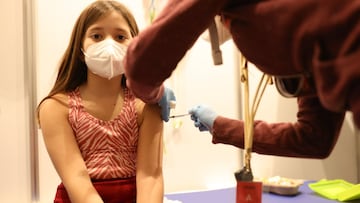What are the symptoms of Omicron in children?
The Omicron variant is taking hold in the United States with many areas reporting higher daily case numbers than at any point during the pandemic.


The Omicron variant has led to a rapid increase in cases across the United States. With the holidays quickly approaching many are re-evaluating their plans.
Not much has been confirmed about the new variant, but there is preliminary evidence that Omicron is more contagious than past strains. Additionally, there could be a greater risk of reinfection among those who have already had covid-19. But what the concern for scientists, doctors, and health officials is the hospitalization rate. The danger of a more contagious virus is that more people will become ill and need to be hospitalized. Already some states are canceling elective procedures which can include cancer screenings, some transplants, and hip and knee replacements. When hospitals become overwhelmed, personal and resources are scarce, and non-covid-19 patients may not be able to receive the care they need.
Children have also been a particular focus, with many examining if Omicron can lead to more severe infection. There is some evidence from South Africa that shows that the impact on children may be similar to the Delta variant. In South Africa, the National Institue for Communicable Diseases reported that children under two account for around 10 percent of hospitalizations in Tshwane, one of the hardest-hit regions. This aligns with the numbers captured when the Delta variant led to a surge in cases in the area earlier this year.
Hospitalizations of children
Some of the high rates of hospitalization among younger children relate to the fact that they are unable to receive vaccines, meaning they are less protected. Delta led to a surge in hospitalizations towards the end of August. Between 29 August and 4 September, around 342 children were admitted to the hospital each day. That number has dropped to around 192 a day, between 5 and 11 December. However, it is now increasing, after months of steadily falling.
Symptoms in children
Related stories
So far no reports have confirmed an increase in the severity of symptoms related to Omicron cases in children or adults. While some have talked about cases of Omicron being more "mild," this has not been confirmed and the World Health Organization has cautioned against believing this message until more data is collected.
Vaccines and children
All children over the age of five are able to receive vaccines. Those between five and eleven are given two doses of the Pfizer and BioNTech vaccine that is a smaller quantity than what is administered to adults. Earlier this month, the Food and Drug Administration announced that sixteen and seventeen-year-olds would be eligible to receive booster shots.

